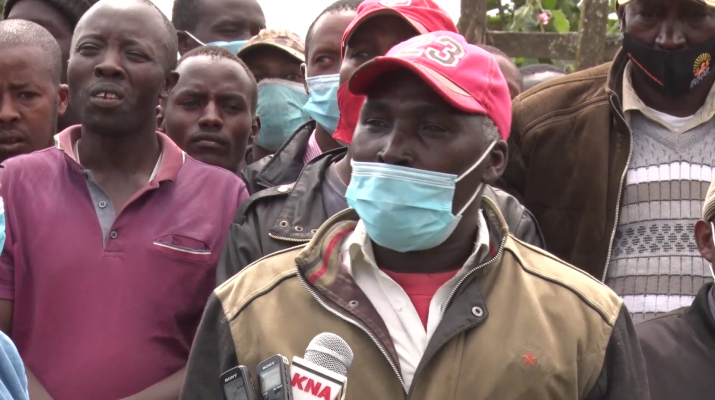Food security is one of the four agenda of President Uhuru Kenyatta in his last term of administration hence both the county and national governments have been keen in promoting food production by allocating a huge budget to the sector.
In the 2021/2022 financial year county budget estimates, the County Executive Committee (CEC) member in charge of Finance Julius Sasai allocated Sh. 491 million to promote food and nutrition in the county.
“We are encouraging our farmers to boost productivity, value addition and ago-business as part of achieving the big four agenda,” said the finance and planning CEC, when he read the budget two weeks ago.
The money is expected to promote increased production and value addition that will give the farmers a huge return hence boosting them economically.
Apart from Tourism, Narok county is famed for agriculture production owing to the fact that major food crops among them wheat, barley, potatoes, maize and beans do well in the region.
Due to this fact, Kenya News Agency visited irish potato farmers at Kisiriri area in Narok North Sub county who are famed of potato production to understand the woes they undergo in their potato agro-business.
Kisiriri assistant chief Johnstone Taga confirmed that Irish potatoes do well in the area as one acre of land can produce over 60 bags 50 kilo sack, in a single season.
However, the assistant chief lamented of poor market prices as the farmers despite having formed groups to sell their produce, are still selling the potatoes at a throw away price.
“We use about Sh. 40, 000 shillings in land preparation and to buy farm inputs that are very expensive. However, in a season that the current one, a bag that is oversized is selling at Sh. 600 meaning the farmers will incur huge losses,” said the assistant chief.
He blamed the brokers whom he said are still keen on using the outlawed measures when buying the potatoes.
Taga called on the county government to enforce the law passed by the county government on potato packaging that recommended 50 kilogram per bag.
“The buyers have been packaging almost double of the actual size and buying at a price of Sh. 600 or below. This makes the farmers to sell their potatoes at a throw away price bringing huge losses to the farmers,” said the local administrator.
For the farmers to get profit, chief Taga recommended a sale of at least Sh. 1500 per 50 kilograms bag of potatoes as the farmers mainly depend on potatoes for their livelihood.
He lamented that at some point, the farmers sell potatoes at Sh. 300 making them to incur huge losses a fact that has discouraged many farmers from planting potatoes.
His sentiments were echoed by Evans Letipa, a famous potato farmer who asked the county government to intervene and enforce the new regulations enacted recently that were meant to protect farmers from exploitation.
“We have suffered enough from the sale of potatoes and now we want the county government to be strict and keen when assessing the bags at the collection centers and at the barriers,”said Letipa.
Julius Maita also a potato farmer blamed middle men commonly known as ‘brokers’ for exploiting farmers saying they collaborate with the buyers to oversize the sacks
“The exploitation by the brokers is very hurting and demoralizing, we want the brokers to be forced to follow the laid regulations or else legal action to be taken against them,”said Maita.
The regulation passed by the county assembly requires farmers and dealers to pack Irish potatoes into a maximum weight of 50 kilograms and sell by kilo. Those who violate the law risk a jail term of three months if convicted or pay a fine of Sh. 500, 000.
The Narok Chief officer in charge of Agriculture, Livestock and fisheries Dr. David Letuati asked farmers to form strong groups that will help them negotiate for prices to the suitable buyers.
He also warned that brokers who exploit farmers saying they risk arrest and being arraigned in court reiterating that farmers have a right of selling their products as per the government regulations.

